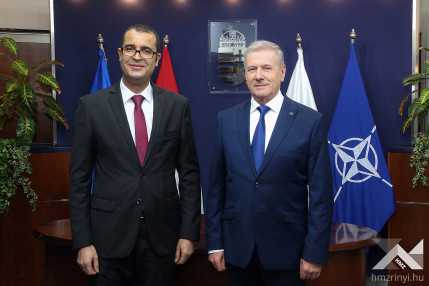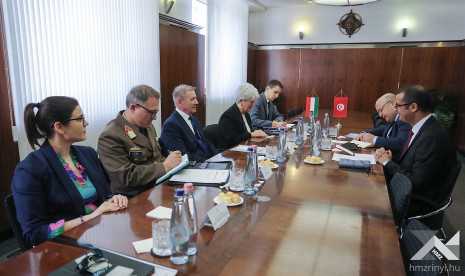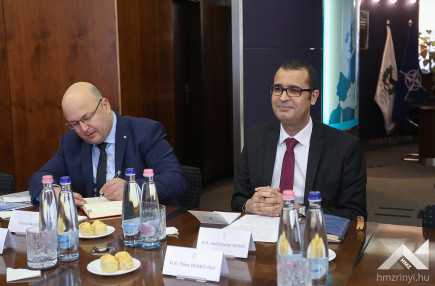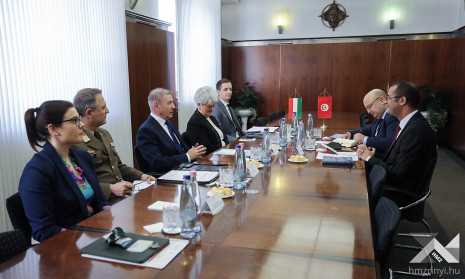Minster of Defence receives Tunisia’s ambassador to Hungary
Text: Ministry of Defence | Photo: WO Lajos Szabó | 12:12 March 2, 2022On 1 March in Budapest, Defence Minister Tibor Benkő received Abdelkarim Hermi, the ambassador of the Republic of Tunisia to Budapest on a courtesy call.

At the meeting, Tibor Benkő said that the relations with the Republic of Tunisia are balanced. For Hungary, Tunisia is a key partner in North Africa, and the cooperation between the two countries has been going on for more than six decades.

The minister gave a description of Hungary’s security policy environment. Our country lies at the intersection of threats from the east and the south. At present, we must face both challenges at the same time, because while the pressure of illegal migration does not ease on our southern borders, the ongoing war in neighboring Ukraine threatens the security of not only Hungary but also of Europe as a whole. Hungary must handle the situation with great circumspection, because it has to guarantee the security of its citizens and, at once, take responsibility for the fate of the Hungarian minority in Transcarpathia. Accordingly, the Hungarian Defence Forces have redeployed forces to the eastern border with the dual objective of providing support for the Ministry of the Interior with the organized reception and supply of the about 95,000 refugees so far, and also of preventing armed groups from drifting across to our country from the area of Ukraine. Thanks to the National Defence and Armed Forces Development Program, the Hungarian Defence Forces are currently performing these tasks on their own, but in the framework of the Alliance.

Ambassador Abdelkarim Hermi expressed his appreciation for Hungary’s wise handling of the Russia–Ukraine conflict. Furthermore, he agreed with the Hungarian position that the only way to resolve the conflict is through negotiation between the warring parties.
The Tunisian ambassador gave a picture of the workings of the Tunisian Ministry of National Defense, and outlined the potential areas of military-to-military relations, mentioning education and training, military medicine and the defence industry. Concurring with the initiative, Tibor Benkő made a proposal to identify potential areas of military cooperation on the level of subject matter experts, and to subsequently specify them in a framework agreement to be concluded between the two ministries of defence.
